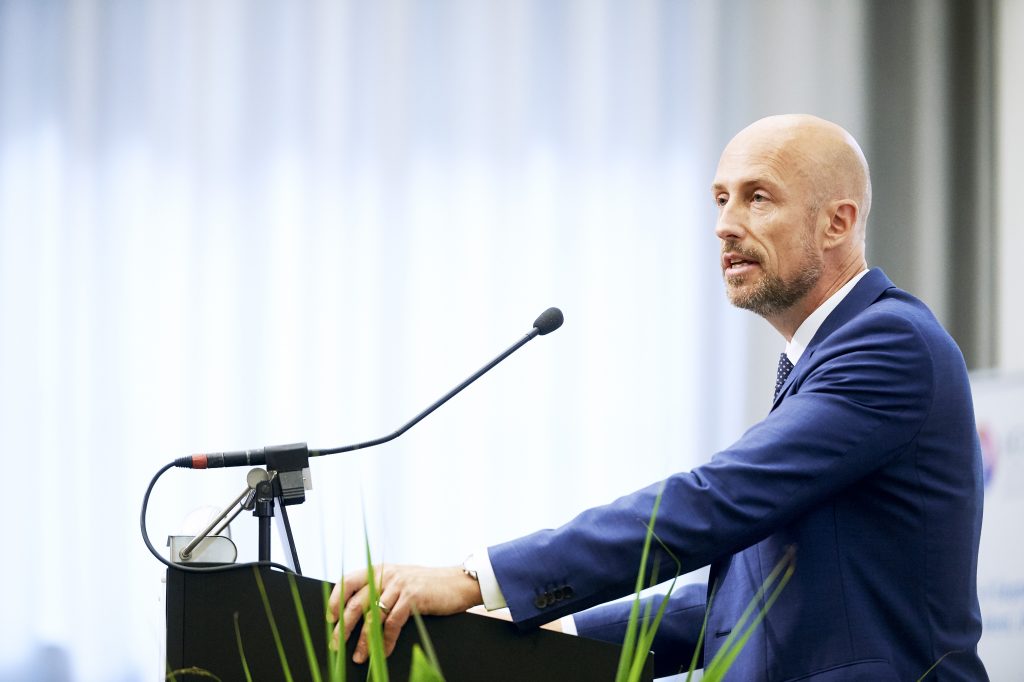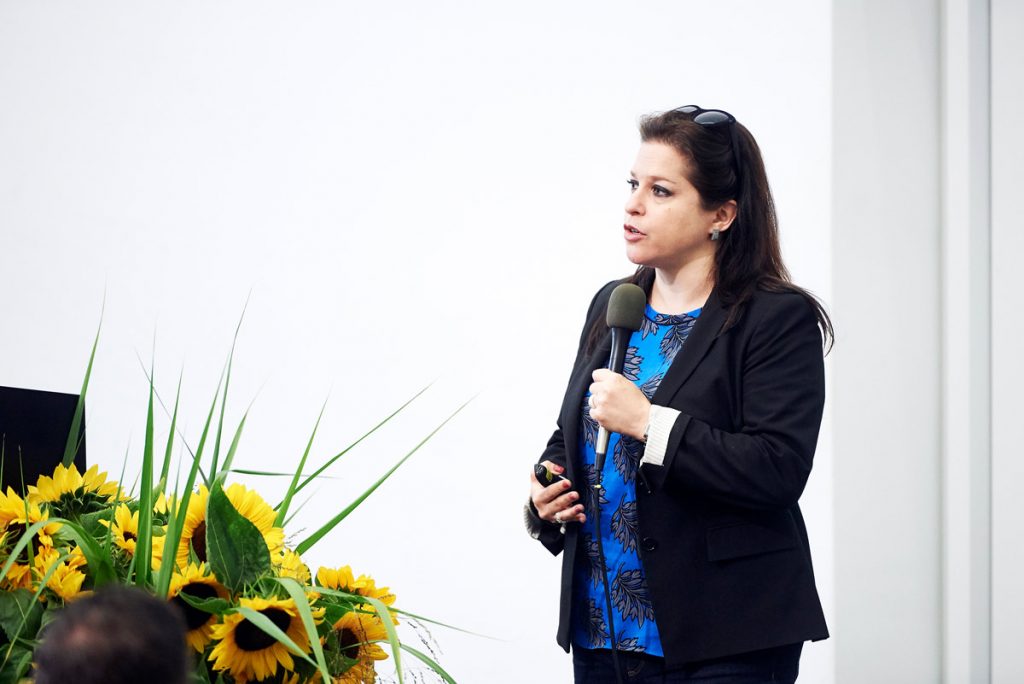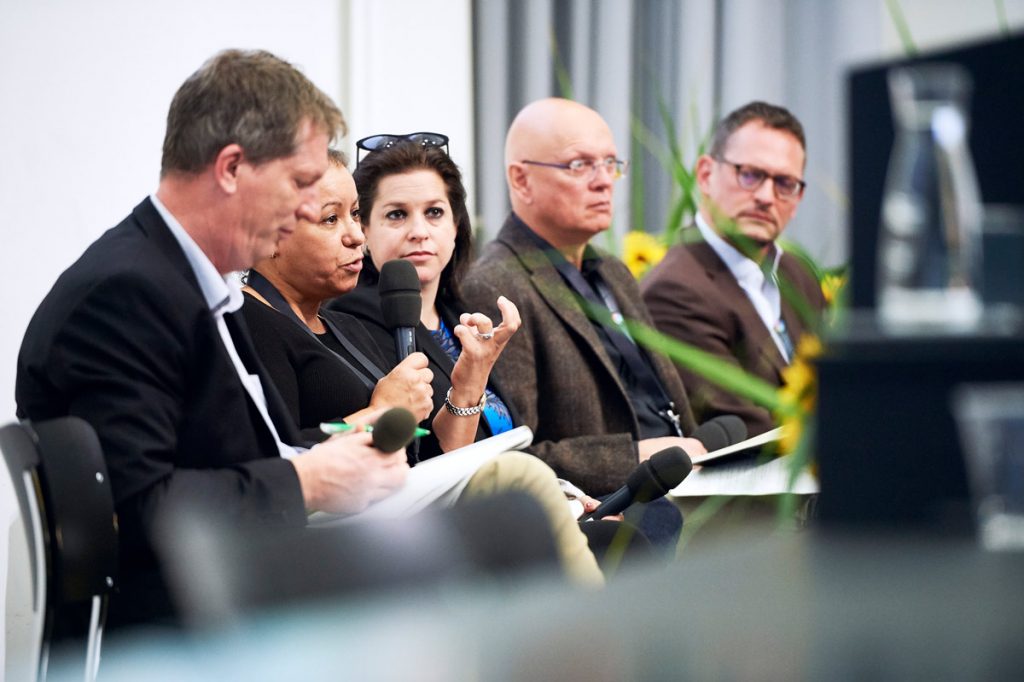6 September 2017, Author: Brigitte Portner, CDE
Moderated by Thomas Breu, Director of the Centre for Development and Environment (CDE), University of Bern, the second day of the ICRD started with two inspiring keynotes on how to finance sustainable development.
Michael Gerber, Ambassador and Swiss Special Envoy for Global Sustainable Development, spoke first. Mr. Gerber drew attention to the current international agreement on financing the Agenda 2030, the Addis Abeba Action Agenda Financing for Development – or, as he prefers to call it, “financing for sustainable development”, implying a paradigm shift.

Michael Gerber, Ambassador and Swiss Special Envoy for Global Sustainable Development. Photo: Manu Friederich
In his presentation, Mr. Gerber showed that Overseas Development Assistance (ODA) is still very important, particularly in least-developed countries, where ODA comprises as much as two-thirds of countries’ Gross Domestic Product (GDP). Moreover, ODA was very successful and the adoption of the 0.7% of GNP aid benchmark by UN countries in the 1970s served to mobilize action. Mr. Gerber argued that ODA is a moral obligation of donor countries and also ensures some level of predictability of financial flows for poor countries. He stressed that ODA will remain important in the future, but that additional sources of financing would be necessary in order to achieve the 2030 Agenda. He drew particular attention to the role of the private sector and the potential of public–private partnerships. Mr. Gerber highlighted three fields of action for business: First, companies have to take corporate social and environmental responsibility. Second, multi-stakeholder partnerships, including public–private partnerships, must be boosted. Third, investment should be steered towards SDG-relevant sectors.
Mr. Gerber concluded by highlighting the potential of our complex financial landscape to support sustainable development. However, he stressed that this will only happen if we transform our minds and patterns of making investments. He made a plea to join forces with other actors to mobilize action and finance in support of the SDGs and a real global transformation.
Speaking second was Dina Pomeranz, Assistant Professor of Economics at the University of Zurich. Ms. Pomeranz discussed the opportunities and limitations of financing for development through taxation. She presented the results of “paper trail” studies on value added tax (VAT) collection in Chile and Ecuador. Based on these two countries, she illustrated how tax collection is a major challenge in many developing countries, especially due to lack of transparency of financial transactions. Nevertheless, while obtaining information is very important, she stated, it is not sufficient. There is no “self-enforcing” tax compliance without credible, effective policies of deterrence. But building deterrence power is a slow and gradual process and by no means a panacea, Ms. Pomeranz argued. Her paper trail studies showed that building deterrence with third-party information over time is possible: the more companies are required to present receipts to deduct costs, the more third-party information about sales becomes available.

Dina Pomeranz, Assistant Professor of Economics at the University of Zurich. Photo: Manu Friederich
Ms. Pomeranz wrapped up her presentation with a handful of main messages. First, she emphasized that developing countries have much lower rates of tax collection than rich countries. This is due to the informality of large parts of the economy, limited government capacity, and political constraints. Second, she highlighted how tax evasion and uneven enforcement causes distortions, and emphasized the need both to increase compliance and expand the tax base. Finally, Ms. Pomeranz stressed that there are no quick and easy solutions, but many developing countries have successfully increased their fiscal capacity and there is significant scope for continued improvement.
Following their speeches, the two speakers sat down for a short but wide-ranging panel discussion. The other members of the panel were Mina Baliamoune, Richard de Raismes Kip Professor of Economics and University of North Florida Distinguished Professor; Mark Herkenrath, Director of Alliance Sud; and Heinzpeter Znoj, Professor of Social Anthropology, University of Bern.

Keynote debate on financing sustainable development to end poverty. Photo: Manu Friederich
The panellists concluded that, firstly, ODA remains important, but that public–private partnerships are crucial to steer investments in support of sustainable development. Secondly, power issues are important and civil society has a crucial role in this. Specifically, civil society must be strengthened in poor countries so that it can put meaningful pressure on local governments to make changes on behalf of domestic development. Thirdly, investments must be made transparent and the private sector has to be held accountable so that benefits actually reach developing countries and local populations.